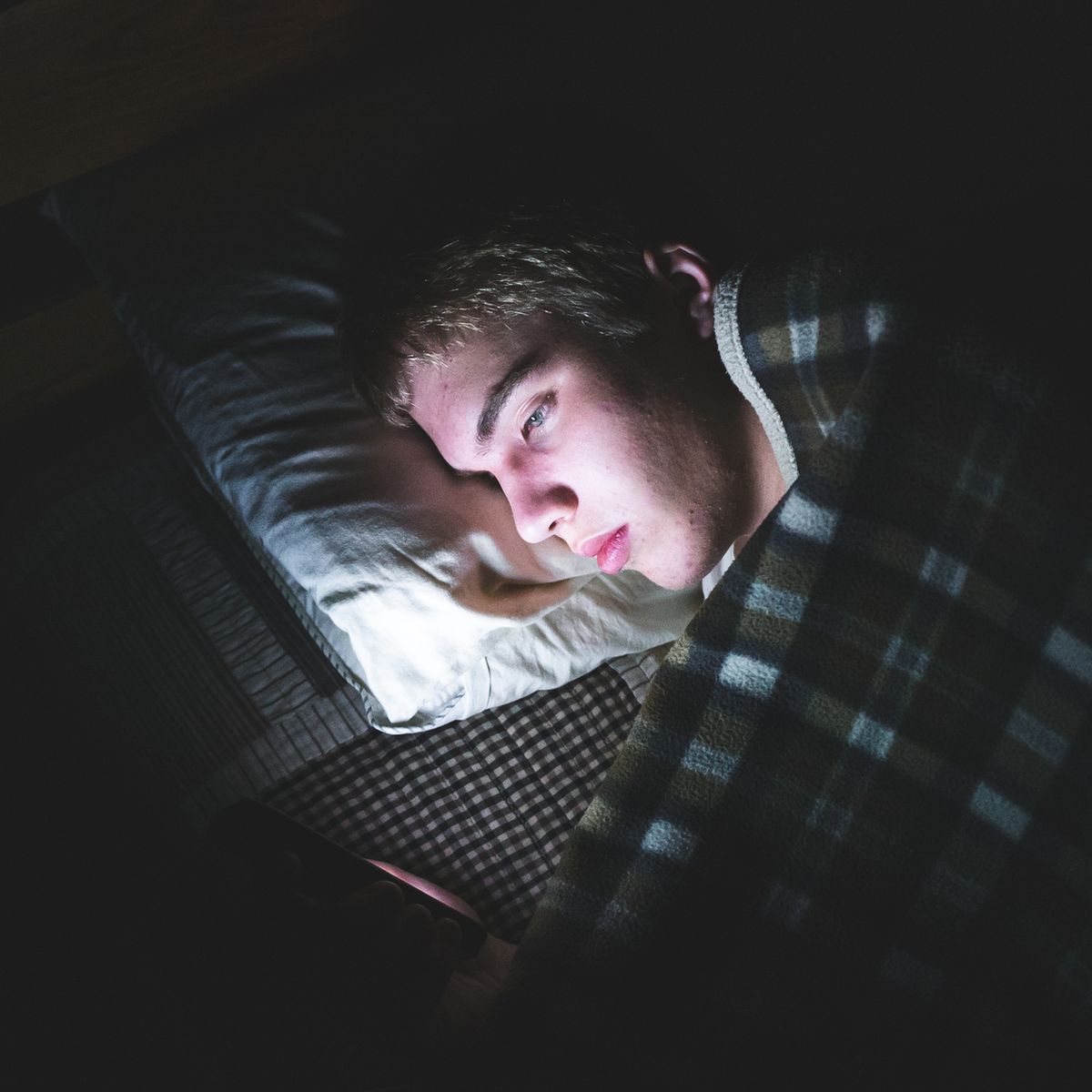The most important known vital is sleep, but how important is sleep to a teenager? Well, it depends on your nutritional choices, health, athletic ability, mental health, etc. In our current society, sleep issues are increasing in teenagers, and there is a possibility that there are many new factors in this era leading to these issues. The issue that sticks out the most is phone usage which is a growing issue for your brain at night time.
Throughout life, every teenager has had a rough night of sleep. But for some its every night, and is the hardest part of their day.
“I personally don’t have a sleep schedule,” said one Norwin student in a recent Knight Krier poll. “It depends on what type of homework I have for that night, it might take me longer to do than it usually does and I might end up sleeping late, and also I have a lot of siblings and I can tell when they’re awake because their TVs are usually loud or they’re screaming, or their phone volume is all the way up.”

According to Sleep Foundation, teens often have a natural tendency to stay up late due to their changing biological clocks. Obligations like early school start times, homework, extracurriculars, and social activities can make it hard for teens to get enough sleep.
According to Johns Hopkins, Teens love to label themselves “night owls,” trading stories of all-nighters and sleeping away an entire Saturday. Though teenagers and their sleep habits may be maddening to parents, they’re partly in response to physical changes that occur during puberty.
“I don’t go to sleep until 3 am every night because I am occupied watching NBA, playing Fortnite, and have a terrible sleep schedule,” said senior Isaiah Ganster.
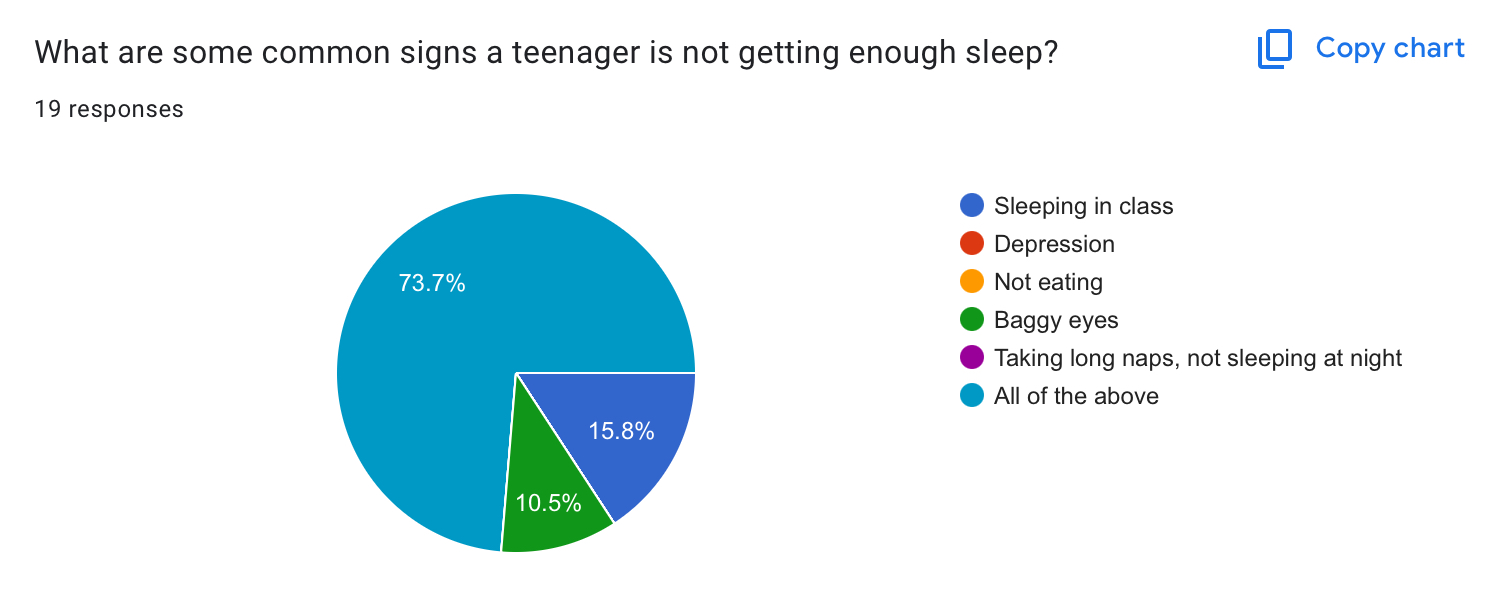
According to UCLA Health, research shows that most teens do not get the sleep that they need on a daily basis. Each person has their own need for sleep. This need may vary from one person to another. Teens are at an important stage of their growth and development. Because of this, they need more sleep than adults. The average teen needs about nine hours of sleep each night to feel alert and well-rested.
This information shows that people have their own need for sleep. Although everyone needs sleep to grow teens need it the most. Most people are suggested 6-8, while a teenager is suggested 9 hours.
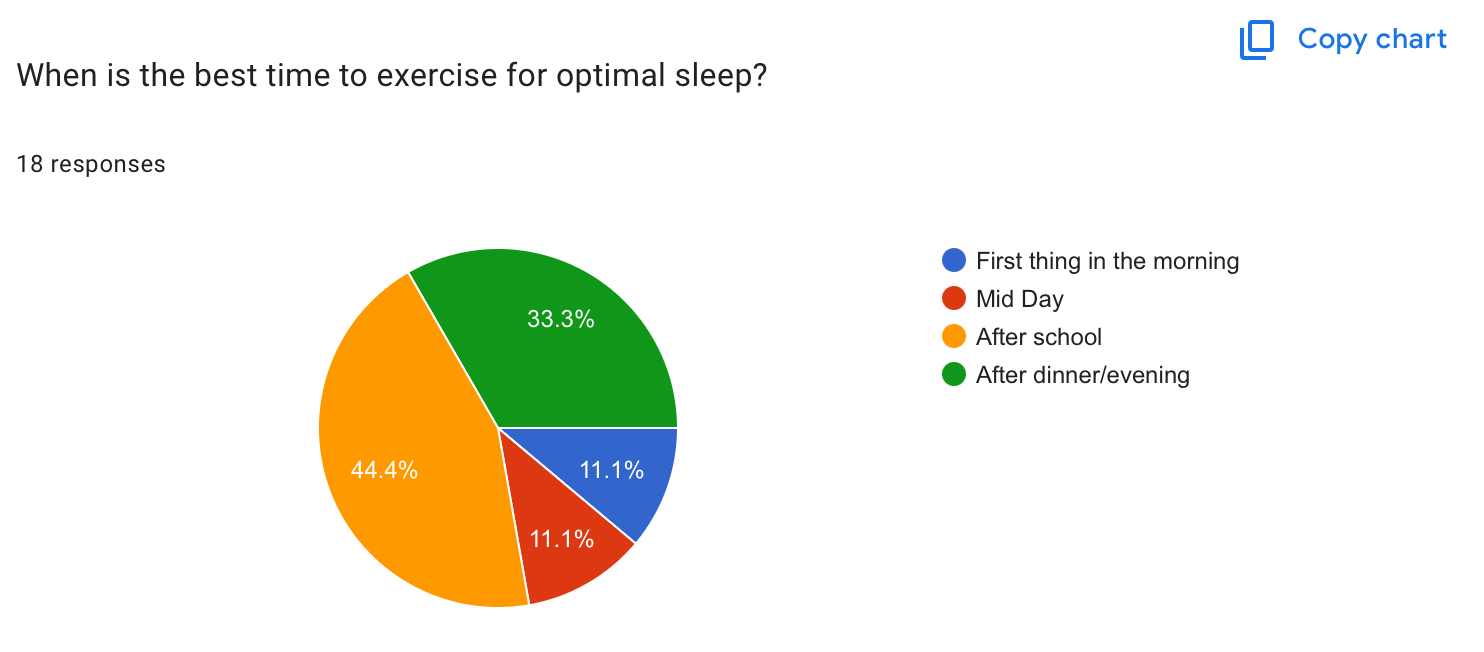
According to a recent Norwin High School poll:
When is the best time to exercise for optimal sleep?
First thing in the morning: 11.1% said the am.
Mid Day: 11.1% said the middle of the day.
After school: 44.4% said after school.
After dinner/evening: said after dinner.
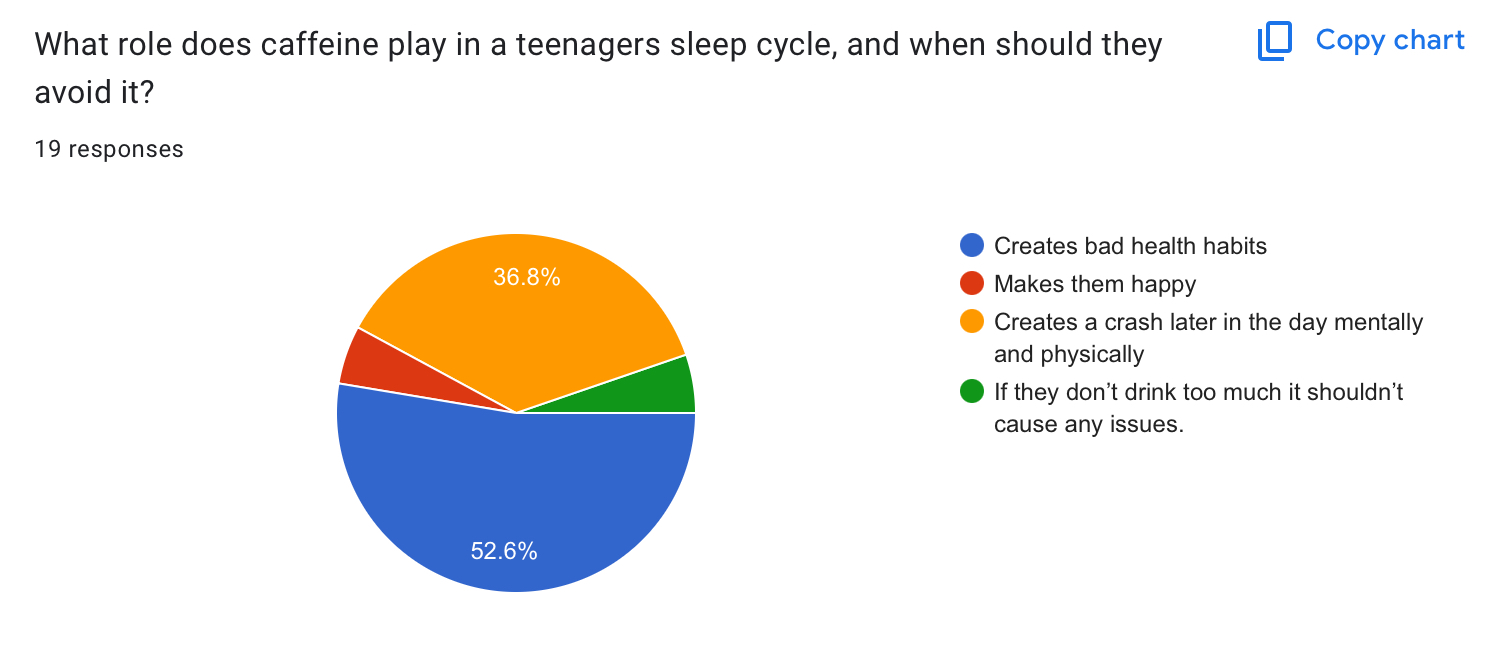
According to Science Direct, “Adolescents often suffer from short and mistimed sleep. To counteract the resulting daytime sleepiness they frequently consume caffeine. However, caffeine intake may exaggerate sleep problems by disturbing sleep and circadian timing. In a 28-hour double-blind randomized crossover study, we investigated to what extent caffeine disturbs slow-wave sleep (SWS) and delays circadian timing in teenagers. Following a 6-day ambulatory phase of caffeine abstinence and fixed sleep-wake cycles, 18 male teenagers (14–17 years old) ingested 80 mg caffeine vs. placebo in the laboratory four hours prior to an electro-encephalographically (EEG) recorded nighttime sleep episode. Data were analyzed using both frequentist and Bayesian statistics. The analyses suggest that subjective sleepiness is reduced after caffeine compared to placebo. However, we did not observe a strong caffeine-induced reduction in subjective sleep quality or SWS, but rather a high inter-individual variability in caffeine-induced SWS changes. Exploratory analyses suggest that particularly those individuals with a higher level of SWS during placebo reduced SWS in response to caffeine. Regarding salivary melatonin onsets, caffeine-induced delays were not evident at group level, and only observed in participants exposed to a higher caffeine dose relative to individual bodyweight (i.e., a dose > 1.3 mg/kg).”
Overall caffeine has its ups and downs, and is not recommended before a teenager goes to sleep.
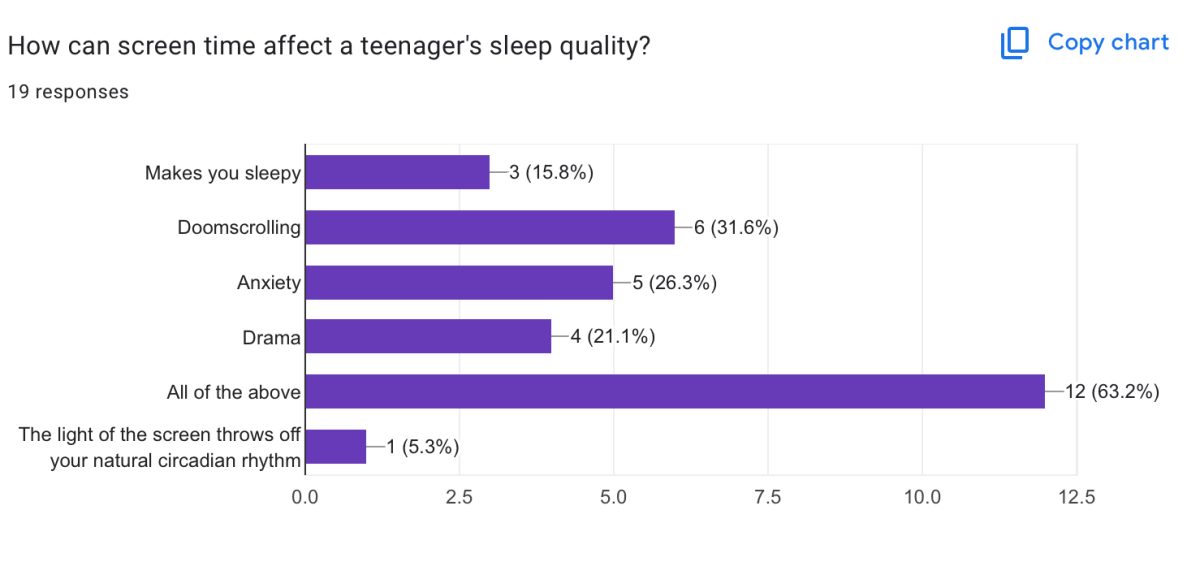
According to a recent Norwin High School poll:
How can screen time affect a teenagers sleep quality?
Makes you sleepy: 15.8% said this.
Doom scrolling (Scrolling for mass periods of time): 31.6% said this.
Anxiety: 16.3% said this.
Drama: 21.1% said this.
All of the above: 63.2% said this.
The blue light: 5.3% said this.
Staying up late can have a lot of positive but negative effects on teens and people caring about their health should be very trying to get 6-8 hours of sleep minimum. Although it’s easier said than done these are just small reasons for teens losing sleep there could be sleep deprivation, which impacts their physical and mental health, academic performance, and overall well-being, while also potentially leading to increased risk-taking behavior.


